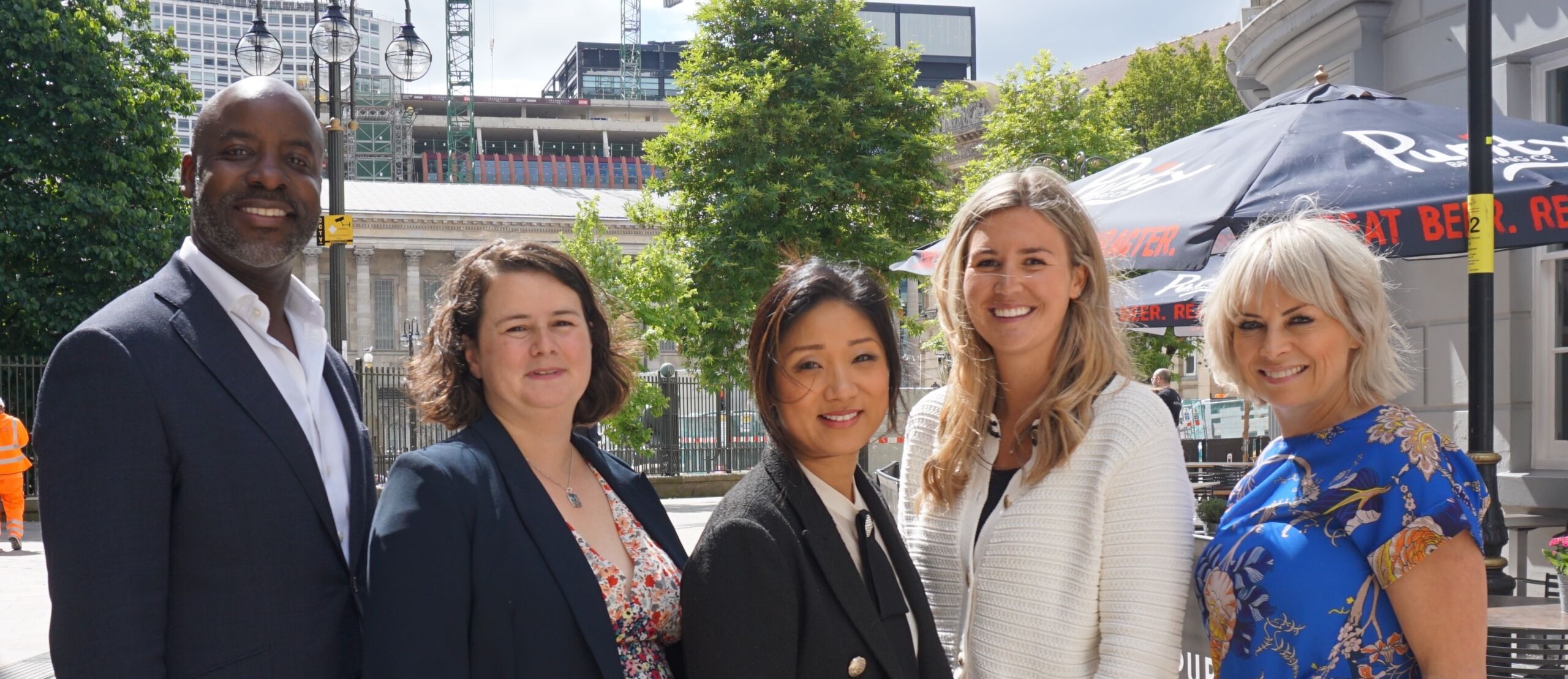Cities worst hit by COVID-19 set to make faster economic recovery but UK needs to think local to level up, according to Demos-PwC Good Growth for Cities report
20 January 2021
New analysis in the latest PwC-Demos Good Growth for Cities report shows that the UK cities and towns hardest hit by the economic fallout from the pandemic are likely to make the fastest recovery, but are expected to be worse off than at the beginning of the pandemic compared to more resilient places.
Cities hit hard during the pandemic, such as Birmingham, Wolverhampton & Walsall have seen their economies decrease by more than 11.7% in 2020, yet are among those with the strongest projected GVA growth rates for 2021. These cities are predicted to recover more effectively than others in 2021, with growth rates of 4.8% and higher. With Coventry predicted to grow by 4.3% GVA.
As the business sectors most impacted by restrictions reopen, the cities most negatively affected due to their sectoral mix will see faster recoveries. However, a return to pre-pandemic conditions will not necessarily instigate a dramatic upturn in economic activity and these city economies will still be smaller in 2021 than they were in 2019.
The report highlights the deep seated challenges facing many of the worst hit towns and cities which in many cases are those traditionally vulnerable to volatile economic performance.
As the UK looks to ‘build back better’ from the pandemic, ensuring that the recovery lays the foundations for building resilience against future shocks will be vital. Learning and embedding lessons from cities, such as Oxford, Leicester, Leeds and Edinburgh, which have performed more strongly over the longer term pre-pandemic, in areas such as jobs, health and skills, is key to driving more balanced and sustainable economic growth across the UK.
The Good Growth for Cities report calls for a doubling-down on efforts to address structural issues – such as improving local skills, encouraging new business development and addressing local environmental challenges – whilst directing effort and resources to the towns and cities that need them to achieve longer-term sustainable growth. Creating employment opportunities and improving skills levels should be top priorities nationally and locally – particularly for younger people.
Other key findings show Birmingham has one of the highest rates of workers on the UK Coronavirus Job Retention scheme, with Birmingham, Solihull and Stratford-upon-Avon all placing 8.9% or more of its workforce on the scheme during 2020. Birmingham also has the highest take-up rate of Universal Credit, with 8.8% of its population aged 16 to 64 claiming benefits in November 2020 compared to 4.8% claiming benefits in January 2020. Oxford had the lowest percentage of Universal Credit claimants, at 3.8%.
Matthew Hammond, Midlands Region Leader & Birmingham Senior Partner, PwC said:
“As a whole, cities in the Midlands have performed well on the environment, owner occupation and income distribution measures on the index. However, this positive performance is also coupled with lower scores in skills, jobs, income and work life balance, as well as the region suffering with high unemployment rates and a strong reliance by local businesses on the UK Coronavirus Job Retention scheme.
“Cities that have the highest proportion of younger people, such as Birmingham, Nottingham and Leicester are likely to face challenges in finding the right employment opportunities for young people. Young workers are therefore entering the labour force in one of the toughest economic environments, which will exacerbate unemployment rates, make employment opportunities even more competitive and potentially undermine social mobility efforts.
“To counter this, local leaders must look to invest in the skills needs of the region to support the next generation into the workforce. Our technology degree apprenticeships with the University of Birmingham, which is now in its third year, is just one of many examples of how we are breaking down barriers to support diversity and social mobility in the people we recruit to build exciting technology based careers with us.
“I am pleased to say, despite so much instability for young people in the midst of COVID-19 restrictions we welcomed a record 275 new joiners to our Midlands offices, including graduates, technology degree apprentices, business placement students and school leavers in our autumn intake last year.
“The pandemic has also led to people living their life much closer to home and the likelihood is some of these lifestyle changes will stay for the medium-term. Citizens will value different things and those places that meet those needs will be the ones that bounce back quicker. This opens up opportunities for places that have advantages in terms of livability and community, and where ‘price of success’ factors, such as housing affordability, are less of an issue.
“The report sets out a series of recommendations for leaders from across the region and local government, as well as the private and third sectors, as they plan their recovery strategies. Taking a broad approach to economic wellbeing and building resilience will be essential to create liveable vibrant places where people want to live, work and visit.
“The regions’ significant growth over the past five years and long-term growth ambitions and investments in HS2, Coventry City of Culture and the Birmingham 2022 Commonwealth Games will also encourage strong conditions for a recovery.”
The Demos-PwC Good Growth for Cities Index ranks 42 of the UK’s largest cities based on the public’s assessment of 10 key economic wellbeing factors, including jobs, health, income and skills, as well as work-life balance, house affordability, travel-to-work times, income equality, environment and business start-ups. PwC’s GVA analysis took into account a city’s sectoral make-up, the impact of the use of the furlough scheme to protect jobs, and rates of Universal Credit claims, Covid infection and mobility rates to project GVA growth rates for 2020 and 2021.
Cities and towns with ‘Good Growth’ are more resilient
-
Many of the cities that perform well in the Good Growth Index – including the Scottish cities of Edinburgh and Aberdeen, and cities in England such as Norwich, Swindon, Southampton and Oxford – have been relatively less economically impacted by the pandemic. Their sectoral mix and performance on broader economic and social indicators have to some extent provided resilience.
-
Many poorer performing cities in the Good Growth Index – including Liverpool, Southend, Medway, Doncaster and Bradford – have been hit hard by the pandemic. These cities have been more exposed to the impacts of COVID-19 and have less resilience in terms of broader economic base and social wellbeing.
-
An exception to this pattern is Leicester – whilst performing well in the Good Growth Index it will be one of the cities hardest hit economically by the fallout from COVID-19. Leicester was the first city to have stricter restrictions imposed following the relaxing of the initial national lockdown in June 2020. The decreased footfall in Leicester city during the summer period will have further reduced the performance of Leicester’s retail sector.
New opportunities
With more people working from home, towns and cities have new opportunities to build virtual connections and play to their strengths in terms of livability, affordability and community. There is still much uncertainty over how these trends will play out in the long-term, however a move to hybrid home and office working does have the potential to level up certain areas of the country. PwC research shows that areas that could benefit from a shift to working from home include outer London and smaller cities like Wigan, Bradford and Blackpool.
Karen Finlayson, Regional lead for Government and Health Industries at PwC, said:
“The pandemic has made us more acutely aware of existing economic and social inequalities and why it is so important to ‘level up’ across the UK. It reinforces our view in Good Growth for Cities of the necessity to look beyond GDP and headlines about the North-South divide to focus efforts on tackling the issues that really matter to the public – and local economies – such as skills, sustainable income and health and wellbeing.
“A broad brush approach to levelling-up will not address the challenges facing the places that have been hardest hit. We need a precise approach which takes into account the strengths and needs of individual towns and cities to build more resilience and drive a fair recovery across the UK. Given continued uncertainties, particularly with the post EU trading environment and unknowns around pandemic recovery, action is required so that levelling up is a reality not an unattainable aspiration.”











